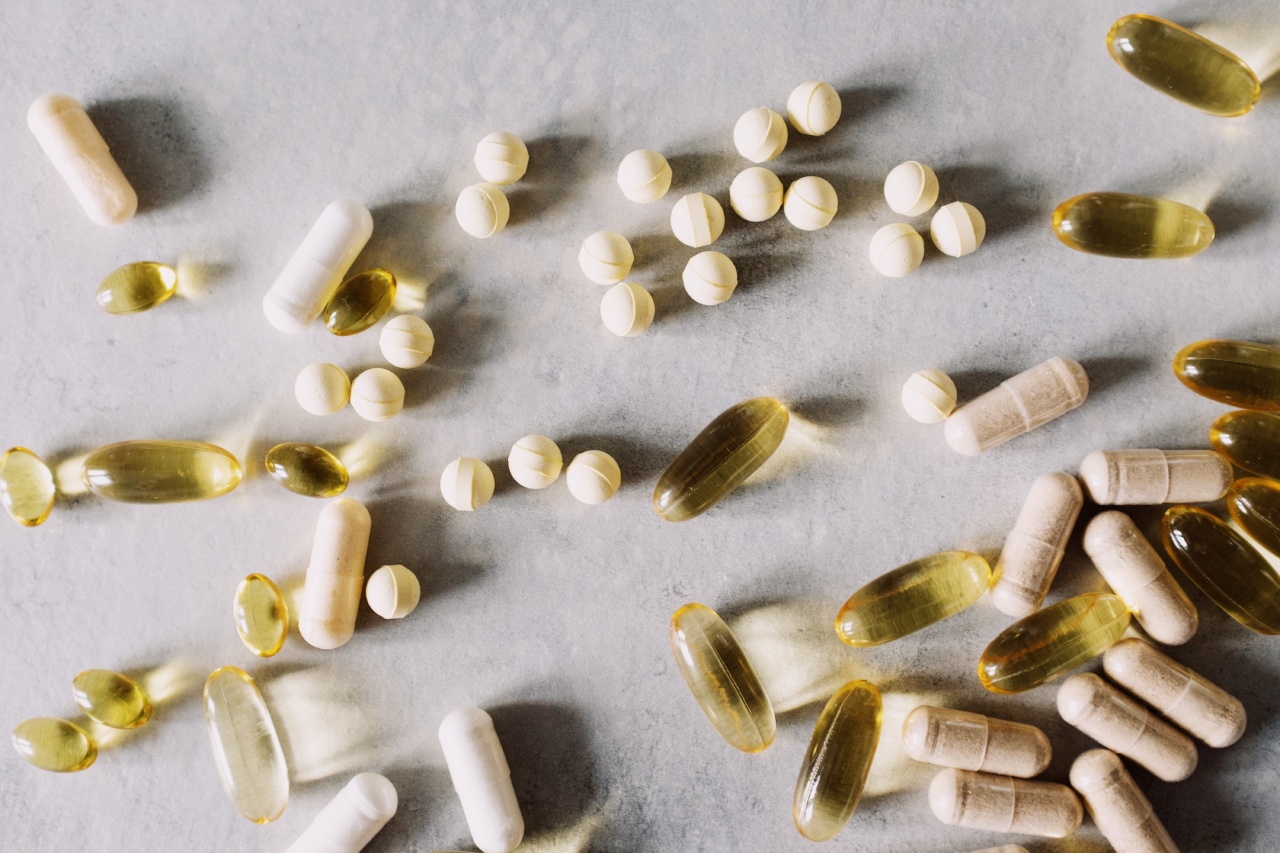Stroke is a severe medical condition that occurs when blood flow to the brain is interrupted or reduced. It can lead to various physical and cognitive impairments, making recovery a challenging and lengthy process.
While stroke rehabilitation programs play a crucial role in restoring functionality, nutritional supplements can offer significant support in optimizing stroke recovery.
1. Omega-3 Fatty Acids
Omega-3 fatty acids, commonly found in fatty fish like salmon and mackerel, have been linked to numerous health benefits, including stroke prevention and recovery.
These essential fats have anti-inflammatory properties that can help reduce brain damage caused by a stroke. Omega-3s also promote nerve cell regeneration and improve cognitive function, memory, and overall brain health.
2. Antioxidants
Antioxidants, such as vitamins A, C, and E, along with selenium and beta-carotene, help protect the brain from oxidative stress, which is a common consequence of a stroke.
Oxidative stress occurs when there is an imbalance between the production of free radicals and the body’s ability to counteract their harmful effects. Including antioxidant-rich foods like berries, citrus fruits, nuts, and leafy greens in the diet can aid in stroke recovery.
3. B Vitamins
B vitamins, particularly vitamins B6, B9 (folate), and B12, are essential for neurological health and can play a critical role in stroke recovery.
These vitamins help maintain the integrity of nerve cells and support the production of neurotransmitters involved in memory, mood regulation, and cognitive function. Foods high in B vitamins include whole grains, leafy greens, legumes, and lean meats.
4. Vitamin D
Vitamin D deficiency has been associated with an increased risk of stroke and poor stroke outcomes. This crucial vitamin aids in calcium absorption, bone health, and immune system function.
It is found in fatty fish, fortified dairy products, and exposure to sunlight. Supplementing with vitamin D, especially for individuals with limited sun exposure, can contribute to better stroke recovery.
5. Magnesium
Magnesium is involved in over 300 biochemical reactions in the body, including nerve function and muscle contractions. Research suggests that magnesium supplementation may reduce the risk of stroke and improve stroke recovery outcomes.
It can also help relax blood vessels, resulting in better blood flow to the brain. Magnesium-rich foods include dark chocolate, avocados, nuts, and legumes.
6. Coenzyme Q10
Coenzyme Q10 (CoQ10) is a powerful antioxidant that supports energy production within cells. It helps protect neurons from damage caused by oxidative stress and may enhance stroke recovery.
CoQ10 is naturally present in organ meats, fatty fish, and some vegetables. However, due to its limited dietary sources, supplementation might be necessary to obtain therapeutic levels.
7. Curcumin
Curcumin, the active compound in turmeric, has potent anti-inflammatory and antioxidant effects. It has shown promising results in reducing brain damage following a stroke and improving overall functional recovery.
Curcumin can be consumed through dietary sources like turmeric-spiced dishes or taken as a supplement to optimize its therapeutic benefits.
8. Protein
Protein is essential for tissue repair and regeneration, making it crucial for stroke recovery. It aids in the synthesis of new neurons, promotes muscle strength, and supports overall healing.
Including lean protein sources like chicken, fish, tofu, and legumes in meals can help optimize stroke recovery outcomes.
9. Fiber
A diet rich in fiber has been associated with a reduced risk of stroke and better recovery outcomes. Fiber supports heart health, regulates blood sugar levels, and promotes healthy digestion.
Whole grains, fruits, vegetables, and beans are excellent sources of dietary fiber that can be easily incorporated into post-stroke meal plans.
10. Hydration
Adequate hydration is essential for optimal brain function and overall health. Dehydration can negatively affect stroke recovery by impeding the body’s natural healing processes.
Drinking an adequate amount of water throughout the day is vital for maintaining healthy blood flow, supporting organ function, and maximizing the benefits of other nutritional supplements.
Conclusion
Nutritional supplements play a crucial role in optimizing stroke recovery by providing essential nutrients that support brain health, reduce inflammation, and aid in tissue repair.
While these supplements can be beneficial, it is essential to consult with healthcare professionals before starting any new supplementation regimen. They can help determine the appropriate dosages and combinations for individual needs, ensuring the best possible outcomes for stroke recovery.






























